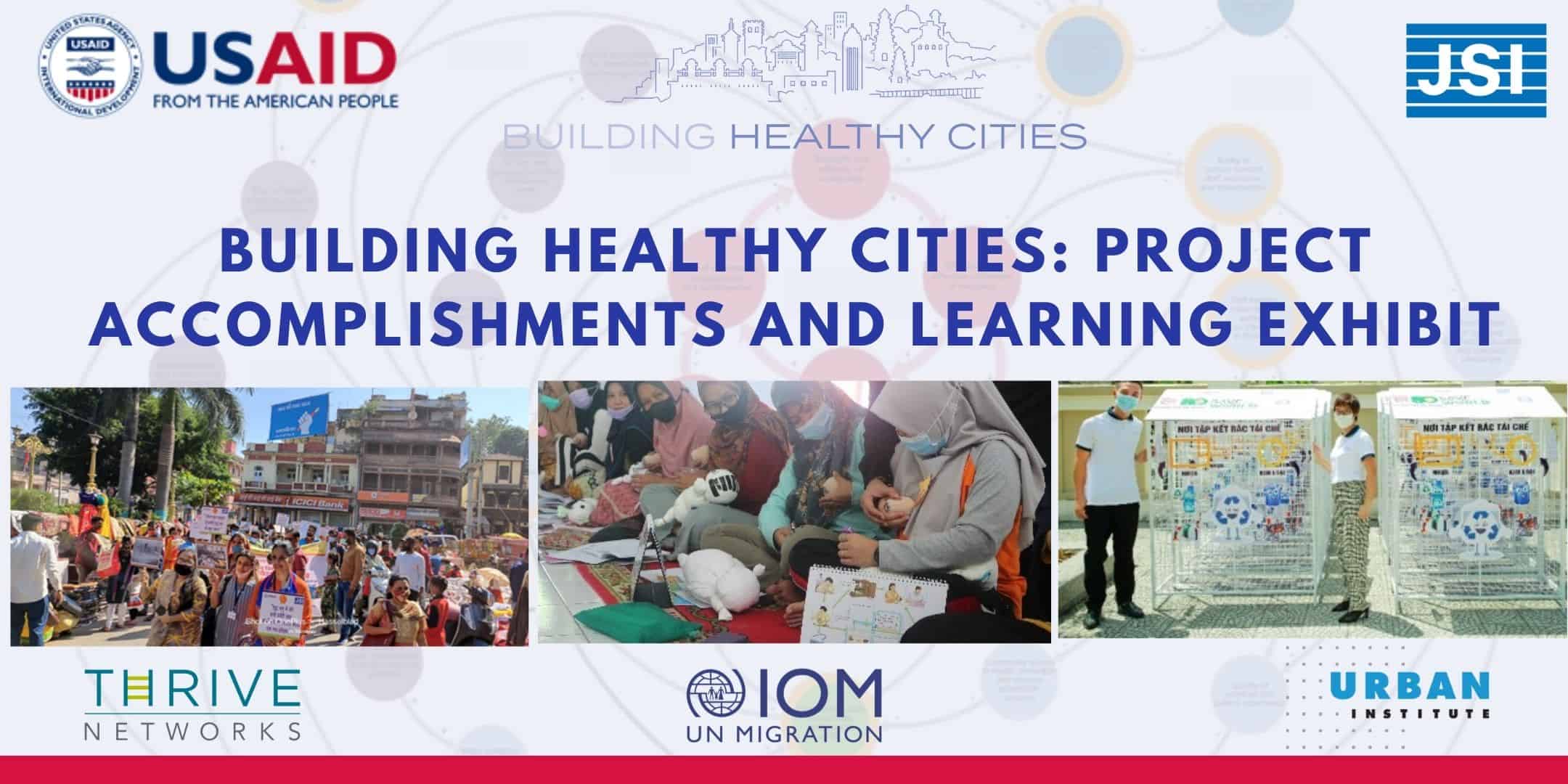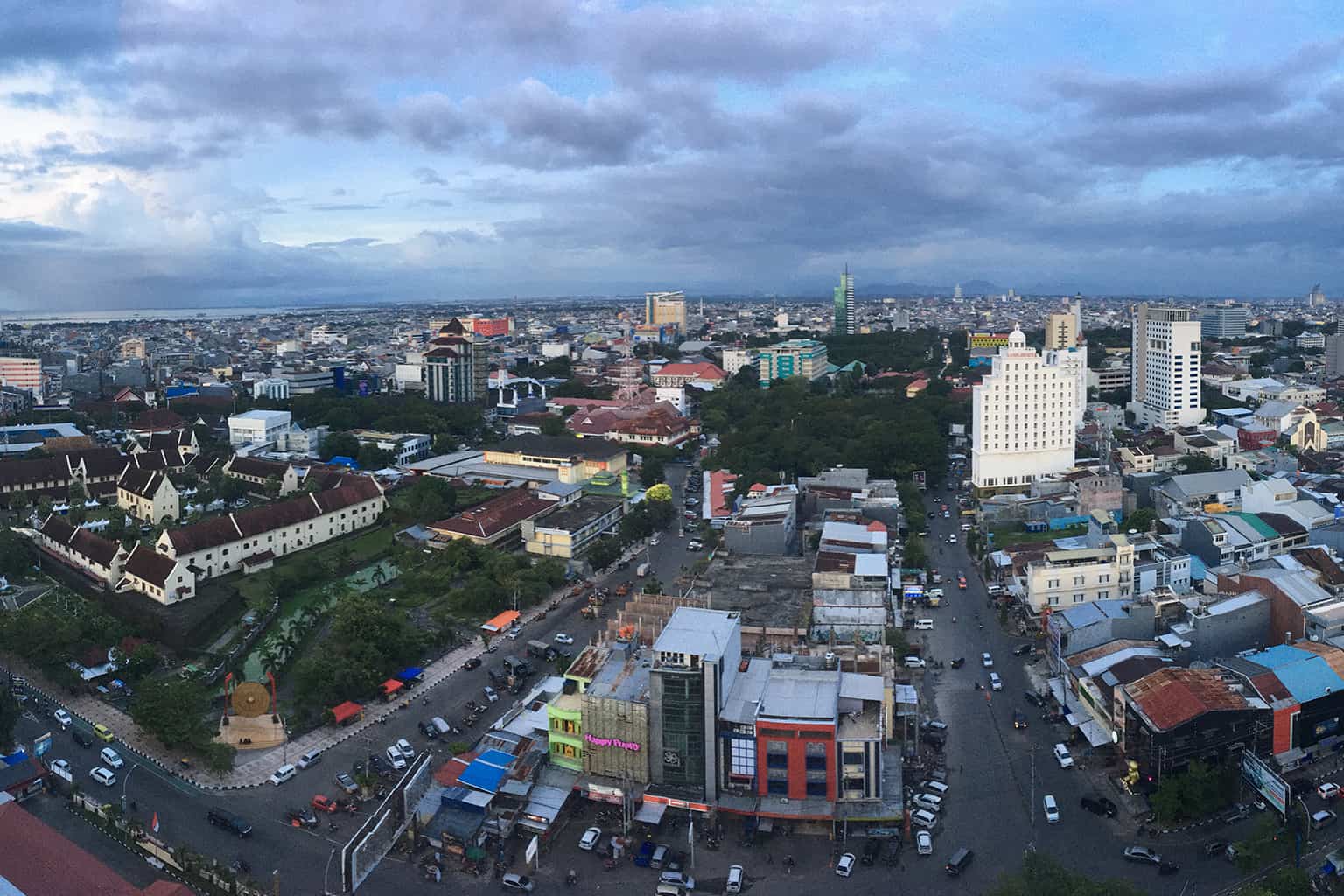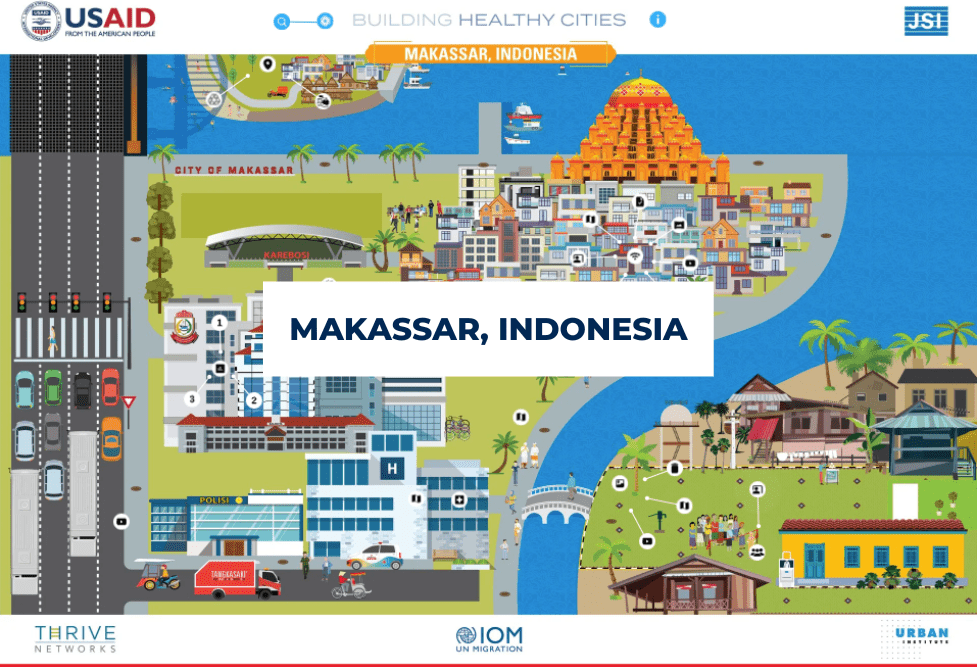From 2017-2022, the USAID-funded Building Healthy Cities (BHC) project tested healthy urban planning approaches in Indore, India; Makassar, Indonesia; Kathmandu, Nepal; and Da Nang, Vietnam. Check out our virtual Project Accomplishments and Learning Exhibit to learn more about the project's work. BHC worked in partnership with Smart City initiatives and urban sector departments to build this new vision for healthy urban planning. In addition, BHC engaged Smart City citizens of every demographic so that they have a voice (via citizen reporting systems and participatory research) and are empowered to advocate for the needs of their communities.
BHC was committed to documenting the processes, successes, and failures of the project to bolster global learning on urban health approaches. To further this goal, BHC developed dynamic systems maps for each city, that help to document the context, leverage points, and actions taken during the course of the project. These maps were developed in concert with the Smart City mechanisms in each city, and use input from a wide range of stakeholders and citizen groups (you can explore all BHC stakeholders in this interactive analysis). To view the latest systems maps and learn more about BHC's work in each city, visit the project pages for Indore, Makassar, Kathmandu, and Da Nang.
BHC is a five-year cooperative agreement funded by the United States Agency for International Development under Agreement No. AID-OAA-A-17-00028, beginning September 30, 2017. BHC is implemented by JSI Research & Training Institute, Inc. (JSI) with partners International Organization for Migration, Thrive Networks Global, and Urban Institute, and with support from Engaging Inquiry, LLC.





